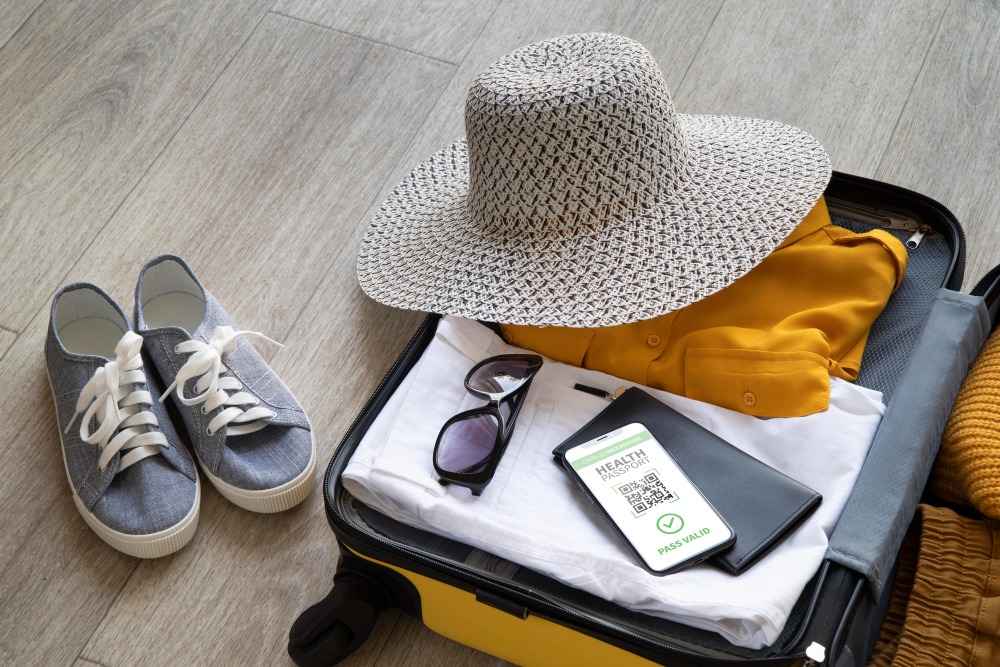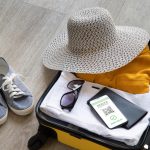Safety Tips for Lesbian Travelers
Traveling as a lesbian can be an incredibly enriching experience, offering the chance to explore new cultures, landscapes, and ways of life. However, it also comes with unique challenges, especially when traveling to regions where LGBTQ+ individuals might not be as accepted. This blog provides practical safety tips and resources to help lesbian travelers enjoy their journeys confidently and safely, with a particular focus on Kenya.
General Safety Tips for Women Travelers in Kenya
1. Research and Planning
Proper research and planning are the foundations of a safe and enjoyable trip. Before you set off to Kenya, it’s crucial to gather as much information as possible about your destinations, accommodations, and transportation options.
- Research Destinations and Accommodations: Start by identifying safe and popular areas for tourists. Websites like TripAdvisor and Lonely Planet offer valuable insights from fellow travelers. Consider using travel forums such as Reddit or dedicated Facebook groups to ask specific questions about safety and local customs.
- Safe Neighborhoods and Reputable Hotels: Choose accommodations in well-known and secure neighborhoods. Reputable hotels and guesthouses often have better security measures and can provide assistance in case of an emergency. Platforms like Booking.com and Airbnb allow you to read reviews and verify the credibility of your chosen stay.
2. Travel Documentation
Keeping your travel documents secure is essential for a smooth trip.
- Keep Copies of Important Documents: Make photocopies of your passport, visas, medical information, and any other important documents. Store these copies separately from the originals and keep digital copies in a secure cloud storage service like Google Drive or Dropbox.
- Secure Storage Methods: Use a money belt or a secure travel wallet to keep your documents and money safe. Many hotels offer in-room safes; use them to store valuables when you’re out exploring.
3. Health Precautions
Staying healthy during your trip is paramount.
- Vaccinations and Health Insurance: Ensure you are up-to-date with all necessary vaccinations well before your trip. Common vaccines for travelers to Kenya include Hepatitis A and B, Typhoid, Yellow Fever, and routine vaccines. Additionally, invest in comprehensive travel health insurance that covers medical evacuation.
- Staying Healthy: Be cautious about what you eat and drink. Avoid tap water and ice made from tap water. Stick to bottled or boiled water and eat at reputable restaurants. Wash your hands frequently or use hand sanitizer to reduce the risk of illness.
4. Local Customs and Etiquette
Respecting local customs and etiquette is not only polite but can also enhance your safety.
- Understanding and Respecting Cultural Norms: Kenya has diverse cultural practices, and understanding these can help you blend in and avoid unwanted attention. For example, in many parts of Kenya, dressing conservatively is appreciated.
- Dressing Modestly: Aim to dress modestly, especially in rural areas. Loose-fitting clothes that cover your shoulders, knees, and chest are usually appropriate and can help you avoid standing out.
5. Transportation Safety
Getting around safely is crucial.
- Using Registered Taxis and Ride-Hailing Apps: Avoid unregistered taxis and opt for ride-hailing services like Uber or Bolt, which are widely available in Kenya. These services offer a level of security as drivers are registered and rides are tracked.
- Avoiding Travel at Night: Traveling at night can be risky. If you must travel after dark, use reputable taxi services and avoid walking alone. Public transportation is best used during daylight hours.
6. Personal Safety
Maintaining a high level of personal safety awareness is key.
- Staying Alert and Aware of Surroundings: Always be conscious of your environment. Avoid distractions like using your phone excessively in public, and be wary of people who seem overly interested in you.
- Avoiding Isolated Areas: Stick to well-populated and well-lit areas, especially after dark. If you’re in an unfamiliar place, don’t wander off alone.
- Keeping Emergency Contacts: Have a list of emergency contacts, including local emergency numbers and contacts from your home country. Share your itinerary with a trusted friend or family member.
Specific Advice for Lesbian Travelers to Avoid Unwanted Attention
1. Public Displays of Affection
Navigating public displays of affection (PDA) can be challenging in regions with conservative views on LGBTQ+ relationships.
- Navigating Conservative Social Norms: In Kenya, it’s advisable to be discreet with affection in public spaces. Holding hands or kissing in public might attract unwanted attention or negative reactions. Save expressions of affection for private settings or LGBTQ+-friendly spaces.
- Finding LGBTQ+-Friendly Spaces: Research and seek out LGBTQ+-friendly venues such as certain bars, cafes, and social events where you can feel more comfortable and accepted. Websites like Spartacus or apps like HER can help you find such places.
2. Discretion in Accommodations
Choosing the right place to stay can significantly impact your comfort and safety.
- Choosing LGBTQ+-Friendly Accommodations: Look for accommodations that are known to be LGBTQ+-friendly. Many booking platforms now have filters or tags indicating LGBTQ+-welcoming properties. Reading reviews from other LGBTQ+ travelers can also help.
- Handling Interactions with Hotel Staff and Other Guests: Be mindful of how you present your relationship to hotel staff and other guests. If you’re unsure about the reception, consider booking twin beds instead of a double bed, and be discreet in public areas of the accommodation.
3. Blending In
Sometimes blending in with the local population can help you avoid unnecessary attention.
- Adapting to Local Dress Codes and Behaviors: Dressing and behaving in a way that aligns with local norms can help you avoid standing out. This might mean dressing more conservatively and mimicking the social behavior of locals.
- Networking with Fellow Travelers and Locals: Building connections with other travelers and friendly locals can provide additional support and companionship. Joining tours or group activities is a good way to meet people.
4. Communication Strategies
Effective communication can help you navigate potentially awkward or unsafe situations.
- Using Gender-Neutral Language: When talking about your partner, using gender-neutral terms like “partner” instead of “girlfriend” can avoid drawing attention to your relationship.
- Strategies for Handling Invasive Questions: Prepare polite but firm responses to invasive questions about your personal life. You don’t owe anyone an explanation about your sexuality or relationship status.
5. Social Media Caution
Your online presence can impact your safety offline.
- Managing Online Presence: Be mindful of what you share on social media. Avoid posting real-time updates that reveal your exact location.
- Avoiding Location Tagging: Turn off location tagging on social media posts to prevent anyone from tracking your movements. Share your travel experiences after you’ve left the location.
Emergency Contacts and Resources for LGBTQ+ Individuals
1. Local LGBTQ+ Organizations and Support Groups
Connecting with local LGBTQ+ communities can provide support and resources.
- Identifying and Connecting with Local LGBTQ+ Communities: Research local LGBTQ+ organizations and support groups before your trip. These groups can offer advice, safe spaces, and a sense of community.
- List of Organizations and Support Networks in Kenya: Organizations like the Gay and Lesbian Coalition of Kenya (GALCK) and the National Gay and Lesbian Human Rights Commission (NGLHRC) provide resources and support for LGBTQ+ individuals in Kenya.
2. Embassy and Consulate Assistance
Your embassy or consulate can be a valuable resource in emergencies.
- Contact Information for Embassies and Consulates: Always have the contact information for your country’s embassy or consulate. They can assist with legal issues, medical emergencies, and other crises.
- Assistance Provided in Emergencies: Embassies can offer support ranging from replacing lost passports to providing information on local legal resources and medical facilities.
3. Emergency Services
Knowing how to access emergency services is crucial.
- Local Emergency Numbers (Police, Medical, Fire): Familiarize yourself with Kenya’s emergency numbers: Police (999 or 112), Medical (999 or 112), and Fire (999 or 112).
- Tips for Communicating in Emergencies: If you don’t speak the local language, learn a few key phrases or carry a translation app. Be clear and concise when describing your emergency.
4. International LGBTQ+ Resources
Global organizations can offer additional support and information.
- Global Support and Assistance Organizations: Groups like the International Gay and Lesbian Travel Association (IGLTA) and Rainbow Railroad offer resources and support for LGBTQ+ travelers worldwide.
- Legal and Travel Advice Resources: Websites like Equaldex provide information on LGBTQ+ rights and safety in various countries, helping you make informed travel decisions.
5. Safety Apps and Hotlines
Using technology to stay safe can be very effective.
- Recommendations for Safety Apps and Hotlines: Apps like TripWhistle and Noonlight provide emergency services at the touch of a button. Hotlines like the Trevor Project can offer support and crisis intervention.
- How to Use These Tools Effectively: Familiarize yourself with how these apps and hotlines work before you need them. Ensure your phone is always charged and has access to mobile data or Wi-Fi.
Conclusion
Traveling as a lesbian can be an incredibly fulfilling experience, but it requires careful planning and awareness of your surroundings. By following these safety tips and leveraging the resources available, you can navigate your travels confidently and safely. Remember to research, stay informed, and always prioritize your safety and well-being. Enjoy your travels in Kenya and beyond!











